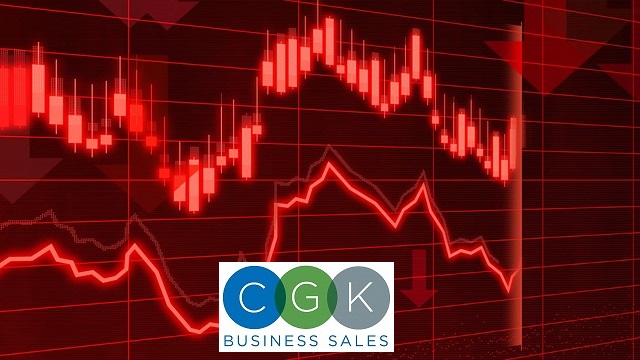Recent economic developments have had wide-ranging effects, many of which have been seen in M&A or mergers and acquisitions. Inflation has reached unprecedented levels, and the Federal Reserve’s response has been to raise interest rates. The increase has created a great deal of uncertainty, especially where business sales are concerned. We haven’t seen market conditions like these in generations, and with numerous factors in play, it may be quite some time before we know how interest rate increases and inflation will affect sellers. We will answer these questions and more in this article about how will rising interest rates affect selling my business?
During this downturn, many businesses are dealing with a tightening money supply as well as revenue shortfalls. 2021’s market was heavily tilted in sellers’ favor, however, so it’s thought that these factors will simply bring conditions back to normal. As you’re preparing to sell your business, keep these facts in mind.
Rising Interest Rates Affect Industrial Sectors Differently
While no one wants to see rising inflation levels, some businesses can endure the effects more easily than others. For instance, transportation companies have dealt with increasing fuel costs over the past several years, and many are forced to absorb the costs because it’s simply not possible to pass them along to customers.
Restaurants are seeing similar effects as food costs rise. While it’s possible—even advisable—to increase menu costs slightly, it’s a risky move during a recession. As consumers re-evaluate their spending habits, business owners must look for unusual ways to make up for these losses.
If you own a business that’s not reliant on food or fuel, rising interest rates and inflation won’t have as many effects on a potential sale. For instance, law firms, accountancy firms, and consultancies do not need to finance property or equipment, so these businesses’ values are less likely to be affected by interest rate increases. A trustworthy business broker can supply the help and advice owners need to streamline the sale process.
Investors May Look Elsewhere
While private equity funding isn’t disappearing entirely, investors are allocating their funds differently. In the recent past, ROI-focused investors have disregarded bonds in favor of private equity—and these firms have capitalized on that trend by snapping up businesses as they come onto the market. How will rising interest rates affect selling my business to these kinds of buyers?
Rising interest rates are once again making bonds a great buy, which may divert some funds away from the private equity sector. There’s no need to worry, though. These investors aren’t going anywhere; they’re just becoming more selective about the businesses they buy.
The Demand for ‘Safe Assets’ is On the Rise
As investors decide where to focus their efforts, they continually balance risk and return. In the recent past, return rates on treasury bonds, savings accounts, and other ‘safe assets’ were rather low, which led many investors to focus on higher-risk asset categories.
With the increase in interest rates, however, the ratio between risk and return is changing, making safe assets a great bet once again. When more money is held in savings accounts and bonds, there’s less to invest in business purchases—and as demand declines, so will a company’s value.
Buyers’ Purchasing Power is Decreasing
Rising interest rates are affecting potential buyers’ purchasing abilities. For example, if a buyer gets a business loan at 10% interest when they could have gotten the same loan at half that rate a year earlier, they’ll pay tens of thousands of dollars more over the loan term. As interest rates increase, business loan eligibility requirements will become stricter, and fewer aspiring buyers will qualify.
Profit Margins May Decrease
As interest rates rise, so do operating costs. Business owners are paying more to buy raw materials, as suppliers and shippers have raised their prices. Rate hikes also lead owners to spend more on the repayment of business debt, further eroding their profits.
As we’ve touched on previously, higher rates have a trickle-down effect on purchasing power, sales revenue, and consumers’ discretionary income. While many businesses lower prices to find new customers, that’s not always the best strategy for an owner who’s considering a sale. Instead, consider tightening the company’s budget before putting it on the market.
Sellers Offering In-House Financing Are Gaining an Edge
In the market’s current state, business sellers who can finance part or more of a deal than others may find themselves at an advantage, with the higher interest rate being the main benefit. In-house financing gives sellers more flexibility when creating deals, allowing both sides to come up with solutions that ensure successful closings. For instance, if the sides can’t agree on a purchase price, a motivated seller may offer a lower interest rate than the buyer may be able to find elsewhere.
It May Be Harder to Stay Afloat
As interest rates continue to rise, business essentials may cost more. Things like renting and buying equipment and property may become more expensive for buyers and sellers because of the increased cost of borrowing. Wages have gone up as inflation has increased, which means business owners are paying more to recruit and keep employees. To prepare for such costs, owners and buyers should build their cash reserves.
When a business responds to interest rate hikes by increasing its reserves before a sale, its new owner is less likely to see operational disruptions. Furthermore, by using cash reserves to absorb cost increases, companies can decrease their need for high-interest loans in the long term.
Now is as Good a Time as Any to Sell
It’s impossible to tell how long the economic downturn will last, or how much more inflation and interest rates may increase. For owners who want to sell their businesses sooner rather than later, now may be the right time to get started.
Consider These Factors When Selling Your Business
If you’ve built a financially sound business, it’s still possible to get a fair price in a down market. To put yourself in the most favorable position possible when listing it for sale, however, it’s best to work with a reputable local business broker. Brokers understand the market and its changes, and they use that knowledge to provide helpful advice that increases the chances of a successful sale. How will rising interest rates affect selling my business? Schedule a call with us or fill out our online form to request more information.


